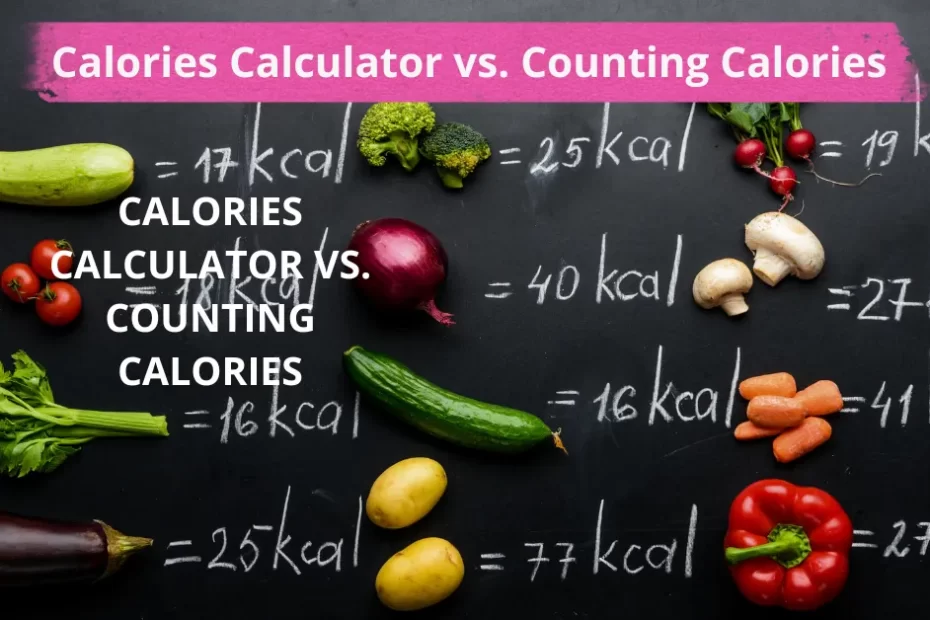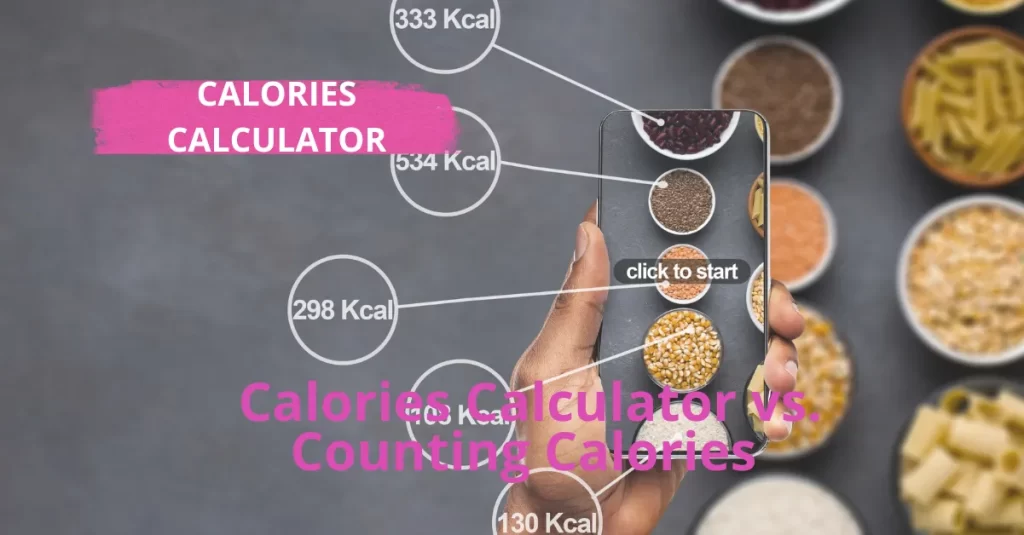Calories Calculator: Calculating your daily calorie needs is essential to achieving your health and fitness goals. A calorie calculator is a valuable tool that can help you determine the right amount of energy you need to maintain or lose weight. In this post, we will discuss the importance of using a calorie calculator, how it works, and how to use it effectively.
Why Do You Need to Use a Calories Calculator?
Knowing your daily calorie needs is crucial for maintaining a healthy weight. Consuming too many calories can lead to weight gain, while consuming too few can cause weight loss.
A calorie calculator estimates your daily energy requirements based on age, gender, height, and weight. Using a calorie calculator, you can ensure you consume the right calories to achieve your weight goals.
A calorie calculator can be beneficial for several reasons, including managing your diet and overall health. However, it’s important to remember that it provides estimates, and individual variations may exist.
How to Use a Calories Calculator:
Calorie Burn Calculator. It’s a web-based application designed to calculate the number of calories burned during various physical activities such as running, cycling, and swimming.
Here’s how it works:
Distance (km): The user inputs the distance they have covered during their workout in kilometers.
Time (Minutes): The user inputs the duration of their workout in minutes.
Activity: The user selects the type of activity they have performed from a dropdown menu. The options include moderate and fast running, moderate and intensive cycling, and various kinds of swimming (general, backstroke, breaststroke, butterfly).
Weight (kg): The user inputs their weight in kilograms. This is important as the individual’s weight influences the number of calories burned.
Calculate Calories Button: After filling in all the required fields, the user clicks this button to calculate the number of calories burned. The calculation is based on the Metabolic Equivalent of Task (MET) values of each activity, the duration of the workout, and the user’s weight.
Result: The calculated number of calories burned is displayed in this section.
This tool is helpful for individuals who are tracking their calorie expenditure for weight management or fitness goals. It provides an estimate of how many calories they are burning during different types of workouts, helping them to plan their exercise routines and diet more effectively.
Track, Burn, Triumph: Activity Calorie Calculator
A calorie calculator is a tool that helps estimate your daily calorie needs based on factors such as age, gender, weight, height, and activity level. It guides how many calories you should consume to maintain, gain, or lose weight. You can ensure you’re meeting your goals and maintaining a balanced diet by tracking your calorie intake.
BMI is a measure of body fat based on height and weight. It is calculated by dividing your weight in kilograms by the square of your height in meters. BMI is commonly used to assess whether an individual is underweight, normal, overweight, or heavier. It gives a general indication of weight status but does not directly measure body composition or distinguish between muscle and fat mass.
BMR is the number of calories your body needs to maintain essential bodily functions at rest, such as breathing, circulation, and cell production. It represents the energy your body expends to support vital functions. Factors like age, gender, weight, and height influence BMR. Knowing your BMR can help determine your daily calorie needs for weight management.
Calories Calculator vs. Counting Calories: A Comparative Overview
When managing your diet and fitness goals, understanding the difference between using a calorie calculator and counting calories is crucial. Both methods aim to help you control your calorie intake, but they approach the task differently.| Calories Calculator | Counting Calories | |
| How It Works: | Input Details: Users enter personal details and fitness goals into the calculator. Estimation: The calculator uses algorithms to estimate your Total Daily Energy Expenditure (TDEE) and suggests a daily calorie intake to maintain, lose, or gain weight. Adjustments: Some calculators offer features to adjust calorie goals based on progress, changes in activity levels, or dietary preferences. | Record Intake: Keep a detailed log of all foods and drinks consumed, including portion sizes. Calculate Calories: Use food labels, nutrition databases, or apps to determine each item’s calorie content. Monitor Progress: Regularly tally your daily calorie intake and compare it to your goals. |
| Definition | A calorie calculator is an online or app-based tool that estimates your daily calorie needs based on various inputs such as age, gender, weight, height, activity level, and fitness goals. It provides a target calorie intake to help you achieve specific health or fitness objectives. | Counting calories involves manually tracking the number of calories consumed through food and beverages throughout the day. This method requires recording each item consumed and summing up the total calorie intake. |
| Benefits: | Convenience: Quick and easy to use, with immediate results. Customization: Provides personalized calorie recommendations based on your unique profile. Guidance: Helps set a calorie target based on scientific calculations and your goals. | Awareness: Increases awareness of food choices and portion sizes. Control: Provides a clear picture of daily calorie intake, helping to manage weight effectively. Flexibility: Allows for adjustments based on actual consumption and progress. |
| Limitations | Accuracy: Estimates can be imprecise, as they rely on general formulas and may not account for individual metabolic differences. Overreliance: Users may become overly dependent on the calculator without considering overall diet quality and nutrient balance. | Time-Consuming: It can be tedious and time-consuming to track every item. Accuracy Issues: Manual tracking and estimation can lead to errors or inaccuracies. Potential Obsession: This may lead to an unhealthy focus on calorie counting rather than overall nutrition and well-being. |
Calories Calculator vs. Counting Calories: Comparison
| Calories Calculator | Counting Calories | |
| Ease of Use | Generally more manageable and faster, offering immediate estimates based on input data. | Logging and calculating each food item requires continuous effort, which can be more labor-intensive. |
| Accuracy | Provides estimated values based on algorithms, which may not account for individual metabolic differences. | It can be more precise if done accurately, but it relies on the accuracy of food data and portion sizes. |
| Overall Approach | It offers a broad estimate and guidance for overall intake and is suitable for those seeking general recommendations. | It focuses on detailed tracking and monitoring, ideal for those needing precise control over their calorie intake. |
The Conclusion:
A calorie calculator is a simple yet effective way to ensure that you are consuming the right energy to achieve your weight goals. By taking into account your age, gender, height, weight, and activity level, a calorie calculator can provide an estimate of your daily calorie needs.
Using this information, you can plan your meals and snacks to ensure you consume the right calories to maintain or lose weight.
MET values: MET Values for 800+ Activities – Is Golf a Sport? – ProCon.org (archive.org)
Health And Wellness: Creating Balance In Body And Mind
Daily Habits That Will Instantly Boost Your Mental Health


